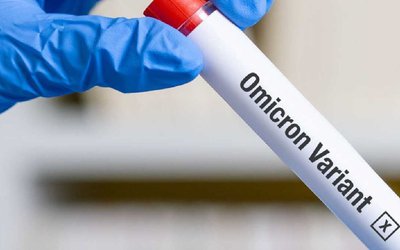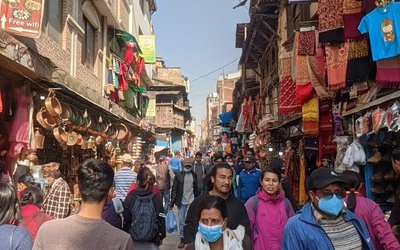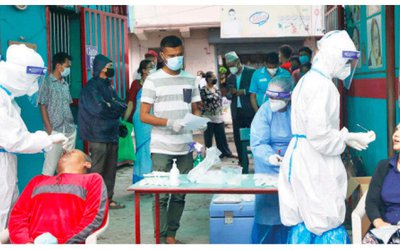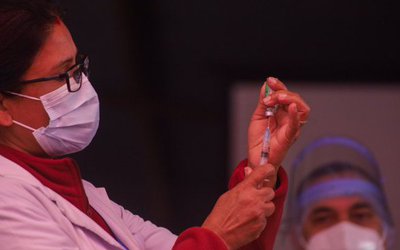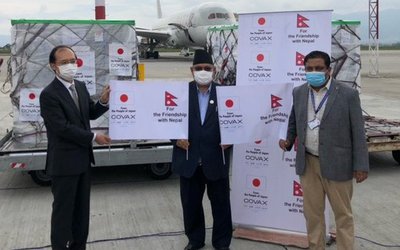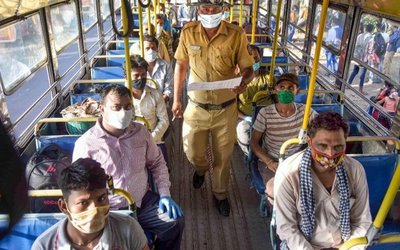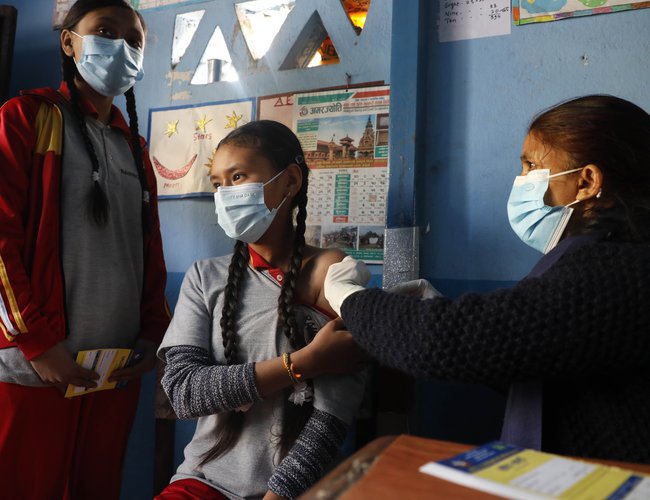
At a time when many countries around the world are struggling to provide vaccine to all their eligible citizens, Nepal has made a big progress thanks to the support provided by various bilateral and multilateral agencies.
Started from early March in 2021 by the vaccine donated by India, Nepal’s vaccine campaign has never faced any shortcoming as such. With donations of another neighbor China, the pace continued.
With the banning of export of vaccine by India, Nepal was in a difficult situation. However, the United States of America came to rescue Nepal’s vaccine drive donating 1.6 million Johnson and Johnson, or the Janssen, single shot vaccine to Nepal. European Union, Japan and later The World Bank and Asian Development Bank backed Nepal’s effort to vaccinate its eligible citizens.
Minister for Health and Population Birodh Khatiwada said that the target of vaccinating the eligible population against COVID-19 would be completed by mid-May.
Speaking at an official program organized to make public the achievements of the first 100 days after he assumed the office, Minister Khatiwada said that the vaccination campaign was being conducted every day across the country.
The program was, however, conducted on the 125th day of Khatiwada taking charge of the Ministry for Health and Population (MoHP).
“We had planned to complete the vaccination campaign by mid-April earlier for those aged above 18 years. Since the vaccines for adolescents aged 12-17 years also became available from December, 2021, the targeted deadline has been extended by a month,” said Khatiwada.
Among the population aged above 18 years (19,922,164), 89.2 per cent people have been vaccinated with the first dose while 73.8 per cent with the second dose.
Regarding the children aged 12-17 years, which covers a population of 3,405,455, 84 per cent have been vaccinated with the first dose and 38 per cent with the second.
“After administering the first and second doses, we must continue with the booster doses. Booster dose has been prioritized for senior citizens, patients with long-term disease and front liners for now but will be made available for all after February 13,” said Khatiwada.
He also added that the government has planned to vaccinate those aged 5-11 years as well. “We are coordinating with concerned authorities to procure the vaccines for these children. It has been assured to arrive soon,” said Khatiwada.
Since concerns have been raised over disappearance of vaccines, Minister Khatiwada said that they had formed a committee to investigate into the issue.
A five-member committee led by Dr. Gun Raj Lohani, chief specialist at the MoHP, was formed around a week ago and has been directed to submit a report next week.
“Data of vaccinated population is not updated timely from the rural areas. Vaccines get damaged as well and we don’t have proper updates on it. The committee will coordinate with province, district and local levels to prepare a report on the situation,” said Khatiwada.
“If anyone has been vaccinated without registering legitimately, s/he can visit the nearby health centre to receive the vaccination card. They will not face any trouble for it. The card will be important to administer further booster doses,” said Khatiwada.
Amid different variants of COVID-19 appearing across the globe, gene sequencing to identify the variants has also been started in Nepal, he said.
“We are also coordinating with other government authorities to identify and punish laboratories and hospitals involved in making fake PCR reports,” said Khatiwada.
He also added that the health desks were active across the border entry points. “Regarding the people entering Nepal from different border points, 90 per cent are being screened for their health situation and 87 per cent of them are being examined for COVID-19,” Khatiwada said.
Alongside the concerns related to the ongoing pandemic, Minister Khatiwada said that the government was actively upgrading other health related facilities as well.
Similarly, construction of a basic hospital (5-bed or 10-bed or 15-bed as per the population) in each local level has been started in 226 places. Constructions of 2,200 basic health service centers have also been completed.
The rabies vaccine, which was only available in Kathmandu-based Teku Hospital, is now being provided through 13 hospitals of seven provinces.
“The support and coordination from front liners, public, organizations and different authorities in prevention, control and treatment of COVID-19 deserves praise and we look forward for its continuity,” Khatiwada added.
- MELAMCHI WATER SUPPLY: No Interruption During Monsoon
- Jun 25, 2025
- KOREAN RETURNEES: Successful Integration
- Jun 25, 2025
- UPPER TRISHULI-1: Engaging With Local
- Jun 25, 2025
- IME GROUP: Twenty Five Years Of Journey
- Jun 24, 2025
- NEPAL’S AIR POLLUTION: A Growing Health Concern
- Jun 24, 2025
